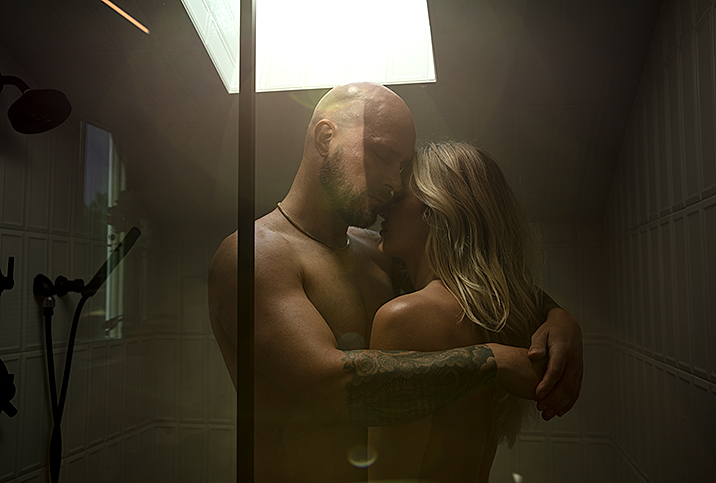Are You Feeling Unfulfilled in Your Romantic Relationship?

Maybe the sex doesn't make your toes curl anymore. Perhaps you find yourself adrift when you should be listening intently to your partner.
It may take myriad forms, but everyone feels unfulfilled in their relationship at one point or another. But how do you determine whether the issue is resolvable or it's time to give up and walk away?
To better understand this conundrum, relationship therapists offered strategies to determine the root of unfulfillment, as well as tools to ensure you've done everything you can to create a healthy, sustainable relationship.
Why are you feeling unfulfilled?
Before deeming your relationship a failure, Chase Cassine, a licensed clinical social worker and psychotherapist in New Orleans, recommended seeing a licensed mental health practitioner and practicing self-help techniques to dig deeper toward the roots of unfulfillment.
Individual counseling
Cassine explained that seeing a therapist on your own can be a beneficial and productive way to improve your relationship with your partner. Counseling provides an outlet to confront your personal issues and the underlying issues that may be affecting your relationship, he said.
Couples therapy
"[Therapy] can provide a safe space for couples to gain insight into the underlying dynamics that impact the relationship," Cassine continued. "Doing so will strengthen your relationship by improving communication between the partners, by learning effective ways to manage and resolve conflict and by providing an opportunity to change negative behaviors that fuel recurrent patterns and themes within your relationship."
Sex therapy
Sometimes things cool off in the bedroom. This could be due to a physical problem, such as erectile dysfunction (ED), or a change in desire, as with differing sex drives. In any case, Cassine recommended both parties see a sex therapist to address and resolve sexual difficulties with aims of having better intimacy.
How your attachment style affects your relationship
Cassine said learning your attachment style is critical, because it allows you to understand how your behavior affects your perception of your partner, intimacy and your own behavior.
Luckily, you don't need to book an appointment with a professional to learn if your attachment style is more anxious or avoidant. Just conduct some online research using trusted sources.
Time apart
Is every conversation with your partner turning into an argument, or is every evening spent together quieter than a visit to the public library?
"Some defined time apart from your partner to reflect on your relationship can provide both partners space to process the issues in your relationship, de-escalate and implement healthier coping skills," Cassine said. "When you get back together, you can approach the situation from a different perspective."
He recommended techniques such as writing in a journal, freewriting or meditation to help process your thoughts and feelings about the relationship during your solo time.
Learn how to be more fulfilled in your relationship
After you've identified the issue at the root of your unfulfillment—perhaps a mismatch of attachment styles, a lack of shared interests or an inability to successfully navigate conflict through communication—you're ready for the second phase: working with your partner to build the type of relationship that leaves you both feeling utterly content and satisfied.
Improve communication
Most experts agree that communication skills are the most important tool for sustaining a fulfilling partnership. Cassine added the "fair fighting" technique as a structured way of addressing your partner about a conflict.
"Both partners must identify their feelings, stick to the issue at hand and respectfully listen without interrupting, name-calling or stonewalling," he explained.
Make time for sex
"Setting aside time for sexual intimacy can demonstrate a mutual commitment to your relationship, enhance communication between partners, and it's guaranteed quality time to nurture the sexual aspect of the relationship," Cassine advised.
Build your support base
Peggy Loo, Ph.D., is a licensed psychologist in New York City and the founding director of Manhattan Therapy Collective. She encourages patients who feel unfulfilled in their relationships to socialize with mutual friends to wash away those "stale, repetitive dynamics" that happen with time to even the most fulfilling relationships.
"Socializing with your partner in a different context or with others can introduce new experiences and bring out qualities in each other's personalities that don't always get a chance to shine when you're just at home in your regular routines," Loo explained.
"Seeing your partner through other people's eyes and being reminded of what others enjoy about your partner can be refreshing," she added. "It can also be reconnecting to socialize with others as a unit. I believe it's helpful to remember that no single person, including your significant other, should bear the weight of all of your emotional and social needs. It's impossible. Being with others who can listen, laugh, share and connect to you is an important reminder that it truly takes a village to be healthy and whole."
Receive mentoring from another couple
Loo recommended going on double dates with other couples whom you respect and who have maintained long-term relationships. She said this insightful exercise can be especially successful when paired with couples therapy.
"Since they've been together for some time, they're likely out of the rose-colored glasses phase and have faced challenges in the relationship," Loo said. "Because of that, they're able to normalize ups and downs or share personal experiences and how they worked through them, which mental health professionals are unlikely to do in their role."
Stop projecting onto your partner
Cassine added that your romantic relationship often serves as a reflection of your inner state. The more turmoil you're experiencing individually, the more you may project those negative feelings onto your relationship. Before you point the blame at your loved one, ensure you're practicing self-love and listening to your needs and desires, rather than creating unrealistic expectations for your partner based on fears and insecurities.
"Projection in relationships is a toxic habit," he said. "It causes the person to feel like a victim of circumstance and starts the negative behaviors of finger-pointing and blame-shifting on the other partner. Engaging in self-love and self-care activities are beneficial, but most importantly, do some inner work to unlearn this behavior.
"When a partner constantly projects their insecurities, fears and unrealistic expectations onto others, it causes cracks in the foundations of their relationships," Cassine continued. "If this issue is not addressed, a person will only continue bringing this self-sabotaging behavior to the next relationship. Relearn healthier ways of identifying emotions and questioning where they're coming from, and you'll see a shift from victimhood to accountability."
What if you’re still unfulfilled in your relationship?
Not every person who uses these tools and strategies will find success. And that's OK, Cassine said. Knowing you put your best foot forward and didn't give up in the face of adversity can make what happens next a bit less stressful.
"If all of these avenues have been exhausted and you cannot find that feeling of fulfillment you seek within the relationship, if your emotional, physical, intellectual and sexual needs still go unsatisfied and if you and your partner have no connection on the most basic levels, it might be best for both parties to move on," Cassine concluded.
Breakups happen and that's OK. If you've exhausted all options and worked in concert with your partner to turn over every stone with regard to fixing the relationship, then moving on may be the best outcome for all parties.


















